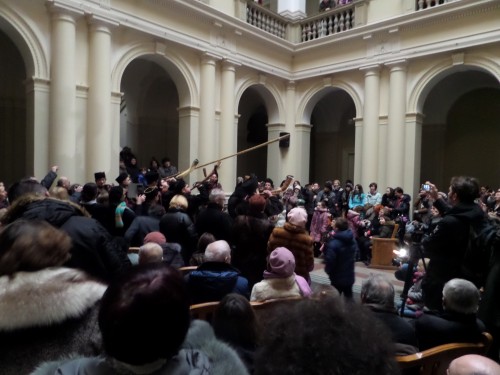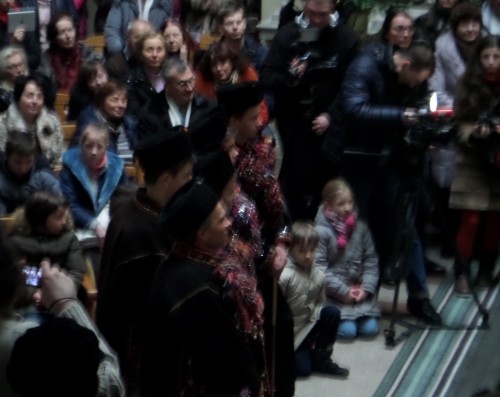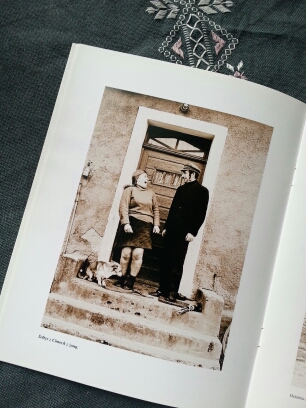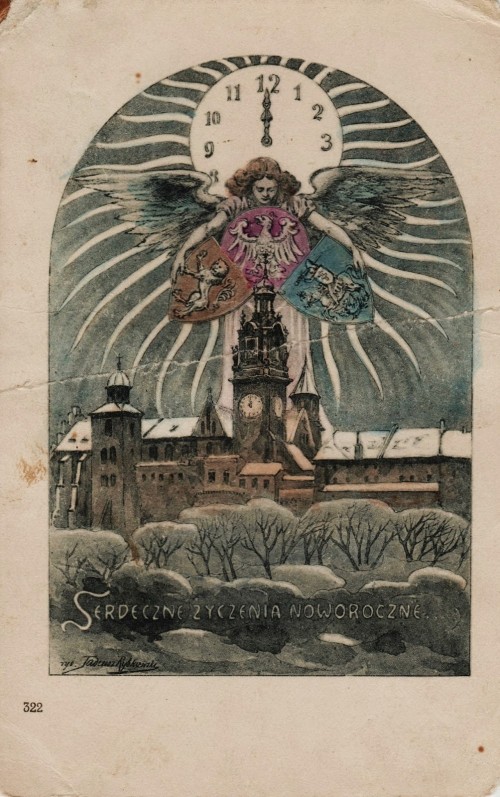Istället för Karpaternas parisiskor
Category: by sophie engström, hutsuls, photo by prallin
Tags: huzuler, Lviv
Äntligen har jag fått höra dem blåsa i sina lurar. Känna hur marken vibrerar av de ljudvågor de åstadkommer. Och det var exakt så fascinerande som jag trodde. Vad talar jag om? Jo, huzuler, förstås.
Nationella museet i Lviv hade bjudit in en grupp huzuler som framförde traditionella sånger från karpaterna. Jag har aldrig haft möjlighet att just se dem handskas med deras horn, och det var faktiskt lika överväldigande som jag jade trott att det skulle vara.
Egentligen är det märkligt att jag intresserar mig för denna folkgrupp, som har mycket patriarkala traditioner. Men det kanske är de piprökande damerna som lockar. På wiki kan man läsa om dessa att De huzulska kvinnorna var omtalade för sin skönhet. Detta gällde särskilt de piprökande huzulskorna från staden Zabie. Under den österrikiska tiden kallades de för Karpaternas parisiskor. Vid festliga tillfällen prydde de sig med ett pannsmycke av silverdaler, koraller och färgade glaspärlor, diadem av påfågelsfjädrar, korallhalsband, broderade blusar och mjuka röda saffianskinnstövlar. Låter otroligt exotiskt, men synd då att de aldrig syns på dess tillställningar.










